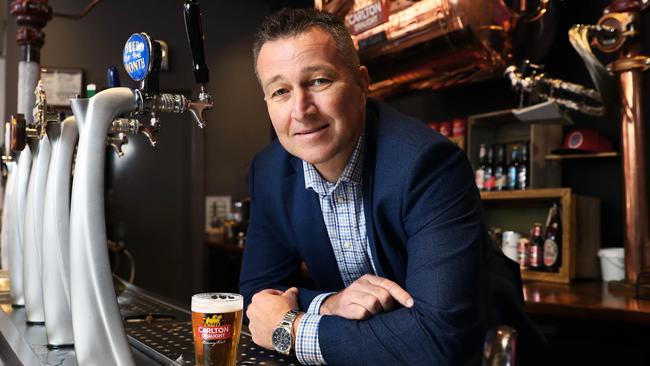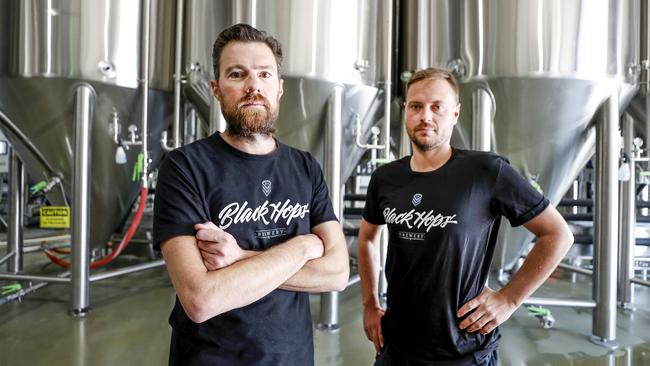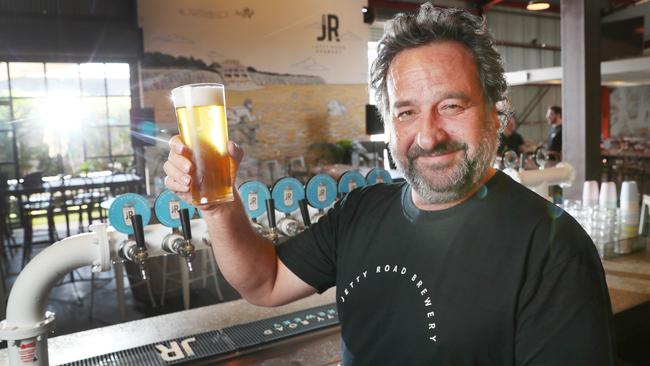Bitter hangover as craft breweries struggle to survive
In the last half of the last decade it felt like there was a new craft brewery popping up every week, but in recent months the fizz has left the sector with craft ale makers struggling for air.

For a while there, in the last half of the last decade it felt like there was a new craft brewery popping up every week.
Crowdfunding sites, especially in the later years, were awash with tales of a couple of mates who’d decided to take their passion for brewing beer and turn it into a business.
And the investor money rolled in from thousands of small backers keen to own a slice of their local beer maker – what could be more fun to invest in?
In fact, the reason it felt like there was a new brewery popping up almost every week was because that’s exactly what happened.
Figures published recently by the Independent Brewers Association show that the number of independent excise-paying brewers in Australia increased from 355 in 2015/16 to 582 in 2019-20 – a rate of more than 45 per year.
In 2022, according to a report produced by crowdfunding industry leader Birchal, 12 per cent of the crowdfunding campaigns that year were for craft brewers, with $14.3m invested by more than 7000 investors in that year alone.
Last month, two of the larger fundraisers in that cohort – Queenslands Black Hops Brewing which raised $2.2m, and Sydney’s Akashi Brewing Company which raised $1.7m – were both placed in administration.
They join a laundry list of small brewers which have either collapsed in recent months, or struck deals with their creditors to continue to trade.
These include Sydney’s Wayward Brewery which went into voluntary administration in January and survived after a debt restructure, Adelaide’s Big Shed Brewing Co which is operating under a deed of company arrangement after going into administration in February, and Melbourne’s award-winning Deeds Brewing which also went into voluntary administration last month. Fellow Victorian brewer Hawkers emerged from a period of voluntary administration recently.

And the industry is about to enter a winter of discontent. Beer sales, as you would expect, dip sharply at the end of the summer months, which has probably precipitated the decision of many operators to bring in administrators recently.
Big Shed, for example, was profitable for the first seven months of the current financial year, but with the lean cooler months approaching, the directors knew they had to act, the company’s administrator told The Australian last month.
The IBA, in its most recent budget submission to the federal government, warns that without regulatory reform, most importantly in the area of beer excise, the industry’s difficulties will only get worse.
“Our recent member survey indicated severe issues for our industry, with 91 per cent of respondents saying they have been somewhat, highly or extremely impacted by the current economic environment and 66 per cent of respondents stated that their business may not survive the economic downturn,’’ the submission says.
“The environment for independent brewing is dire. 2023 saw small breweries closing at an alarming rate and several larger breweries go into administration.
“The start to 2024 is no different. These restructures resulted in dramatic job losses and massive losses for supply chain suppliers and creditors – of which the Australian Taxation Office is often the largest.’’
Excise remissions and small business support helped many small brewers survive the pandemic, but massive cost inflation in the post-pandemic period, including raw materials costs up by 37 per cent, have pushed many brewers to the wall, the IBA says.
“Consumer confidence has been eroded by interest rate rises and other cost of living pressures, drastically reducing expenditure on independent craft beer as it is a ‘premium product’.
“There is no single cause of the challenges facing independent brewing – rather, it is a layering of decades of structural challenges in the brewing industry, together with broader economic issues and increasing regulatory burdens – that, taken together, mean independent brewing in Australia is under significant threat.’’
The IBA is calling for a two-year freeze on beer excise, which is calculated differently to the excise levied on wine.
“Beer drinkers pay double the tax per standard drink compared to bottled wine and eight times the tax rate per standard drink of cask wine,’’ the IBA says.
The IBA would also like to see the creation of a new body – Beer Australia – mirroring the longstanding Wine Australia body charged with promoting marketing and research for the wine sector, and also wants flexibility on the paying back of excise debts.
“Beer will survive the current headwinds,’’ the IBA says.
“The question for government is what beer industry does it want to see in the future?’’
The most recent Black Hops financials on record with the corporate regulator bear out the picture painted by the IBA, with the brewer’s revenue increasing by about $2.5m in FY22 to $16.1m, but its bottom line result plunging from a $867,223 profit to a $1.5m loss, with staff and raw materials expenses soaring.
At the corporate end of the sector, listed entity Mighty Craft pitched a roll up to investors in its $15.8m, 50c per share initial public offer, with the company looking to buy a suite of beer and spirits brands, then benefit from its larger scale.
Headed by former Carlton & United Brewers (CUB) executive Mark Haysman, the company kicked off its investment spree with Jetty Road on the Mornington Peninsula, and following its 2019 listing, added several more brands including Kangaroo Island Spirits, gin producer Brogans Way and a share in former AFL footballer Daniel Motlop’s Green Ant Gin, among many others.
In mid-2021 it executed a $47m deal to buy Adelaide Hills-based Hills Cider, Mismatch Brewing, Adelaide Hills Distillery and 75 per cent of the Lot. 100 hospitality venue in the Adelaide Hills.
That buyout comprised $27m in cash and $20m worth of Mighty Craft shares, which were valued at 35c apiece at the time.
The last vestiges of that deal were unwound this week, with a group led by former CUB Australian head Peter Filipovic agreeing to pay $7.2m in cash for Mismatch, the distillery that makes the 78 Degrees brand, and the lease to operate a Mismatch-branded pub in Adelaide.
Filipovic’s United Publicans group, which includes “good mate” comedian Mick Molloy, picked up Hills Cider and Jetty Road last year also in cash deals.
While the deals are not directly equivalent, the SA-based assets effectively dropped in value from $47m to $10m in less than three years.

Mighty Craft itself is struggling to survive, with its shares trading at 1.9c and the company still burdened by a large debt pile, some of which is owed to a Swiss family office, and lent at a rate of 25 per cent, compounding daily.
Mr Filipovic said the acquisition price for the Mighty Craft assets was obviously part of the attraction, but his consortium of about 15 publican groups, which owns more than 200 venues across the eastern states and SA, also has distribution, and a desire to invest in the brands.
“Each of the brands we bought are good in their own right, they just haven’t been invested in, they have latent brand equity which has dropped a bit but that’s because of lack of investment, rather than the brand not being in the right place,’’ he said.
“And then there are the immediate upside opportunities within the publican group that we’ve created.
“We have over 200 properties within the group that we ensure distribution of these brands in – not many other groups can do that.’’
The group has more than 100 pubs in Victoria, about 16 in SA, 30 or so in Queensland, and the balance in NSW.
It is still aiming to get its brands on the shelves at the major liquor outlets, but Mr Filipovic said being able to get on tap in their own venues is a huge positive.
“When we’re building the brands – each of them have their local communities and we’ll invest in that – and ensure distribution through the pub network that we have and enable them to be brand champions for each of the brands we have.’’
In what are undeniably tough trading conditions, having their own brands also provides better margins for the group and a cheaper option for customers.
Mr Filipovic said his group wasn’t looking for acquisitions when it was presented with the Mighty Craft deals, and said while there were plenty of small brewers looking to make a deal, his group was not actively in the market.
But he is optimistic about the ongoing strength of the pub sector broadly, saying that while cost pressures are front of mind, the pub's place in the Australian community is solid.







To join the conversation, please log in. Don't have an account? Register
Join the conversation, you are commenting as Logout